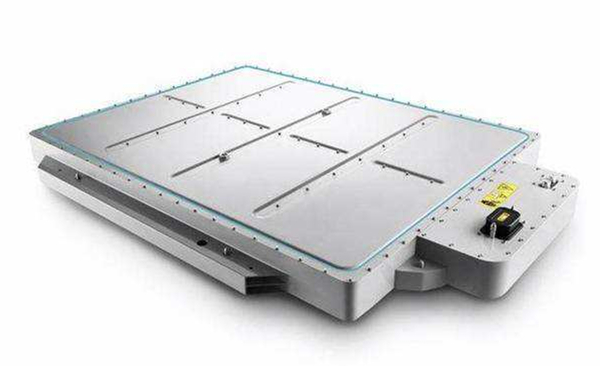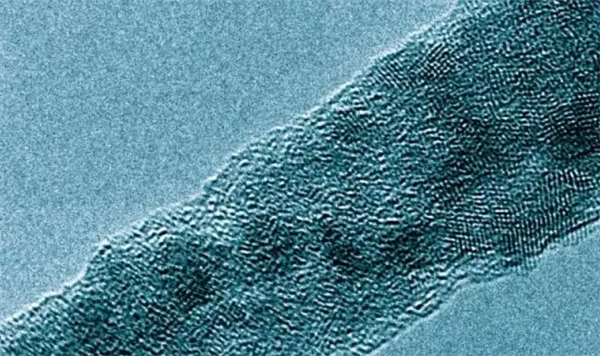18650 Battery Catching Fire Reasons and Safety Strategies
Mar 24, 2020 Pageview:3411
What causes 18650 batteries to catch fire?
The invention of Lithium ion batteries has revolutionized the way power is being used. It solved many power problems and met various market needs. The 18650 Lithium ion battery is one of the oldest yet most commonly used generation of the Lithium ion battery. The problem with Lithium ion batteries is that Lithium as a material is a very reactive one, upon touching Oxygen in the air it immediately starts reacting causing fire and explosion. 18650 Lithium ion batteries are designed with that in mind. In some cases though, 18650 batteries catch fire and explode. To understand why a 18650 battery may explode, we need to understand the charging process first.
In 18650 Lithium ion batteries, the charging process is composed of two phases:
Constant current charging Phase.
Constant Voltage charging Phase. (CV)
In the first phase (Constant current phase); the battery is being charged with its voltage below 4.2V, the charger at that phase will provide the battery with a constant current.
In the second phase (Constant voltage phase "CV"); when the battery voltage reaches the mark of 4.2V, because of the Lithium ion battery characteristics and how it works, constant high voltage will damage the battery. That is why the charger will adjust the voltage when it reaches 4.2V by gradually decreasing the current. The current is usually decreased to approximately 1/10. When that is reached the charging, the circuit is cut off. Which marks the completion of the charging process.
It is also worth noting, that overcharging and over-discharging of Lithium ion batteries in general, and 18650 specifically will result in permanent damage to the battery. The damage is done to the positive and negative electrodes inside of the battery. Over discharging hurts the negative Carbon layer structure, causing the insertion of Lithium ions into the charging process. While overcharging will insert too much Lithium ions into the negative structure of the Carbon inside of the battery, which results in Lithium ions not being released anymore.
Now, that we understood the charging process of the 18650 Lithium ion battery, let us figure out what causes it to explode?
18650 are housed inside of a steel case, some 18650 poor quality ones lack protection. The lack of protection in 18650 batteries causes the internal pressure inside of the battery to increase abruptly when the battery overcharge. When that happens an explosion will happen. Moreover, as any other Lithium ion batteries, puncturing the battery, deformation in the battery, short circuit, and high temperatures, are all factors that will lead to the explosion of the battery.
Most of the time, 18650 that explodes are those that are very poor in quality. Generally, 18650 is a very safe battery, and the safety regulations of its manufacturing process are quite good and effective. However, poor quality 18650 batteries are prone to short circuit during usage, which will cause an explosion. During the event of short circuit; high temperature and high-pressure gas are being formed in a very short time. The rapid creation of both is more than what the battery can handle and more than what can be released through the exhaust valve, which in return will cause the battery to explode.
Most of the modern 18650 batteries are now equipped with a safety valve at the top, which is a mandatory safety manufacturing regulation. When the internal pressure of the 18650 battery gets too high, the top safety valve will open up the exhaust causing the battery to decompress, which will avoid an explosion. However, due to the fact that upon opening the safety valve, other chemical substances will leak into the battery, extreme caution is required, as there is also a chance these chemicals would cause the battery to catch fire on its own.
How do you prevent 18650 battery from catching on fire?
There are some precautions you can take to decrease the chance your 18650 battery catch fire. If you follow, the following steps, there is so little chance that your battery would explode or catch fire. These precautions are:
Do not store your batteries at temperatures that are high. Avoid hot places; do not cover your Lithium ion batteries with blankets or any covers that causes its temperature to rise.
Do not keep all of your 18650 stashed in one place together. Especially while traveling on a plane. Try to put some space between batteries by putting this barrier sheets between them. It is true, keeping Lithium ion batteries close is not a fire hazard, and however, if one of them catches fire and they are close to each other, the other batteries will follow. That is why distance is recommended between them.
Never overcharge your 18650 for any reason. Lithium ion batteries have no memory effect at all. They can be charged and discharged for as many times as possible without any significant loss in their capacity.
Do not over discharge your Lithium ion battery, this will also lead to unwanted results, like the battery entering the sleeping mode, or damaging the capacity of your batteries for good.
Never use any charger other than the one that is designed specifically for your battery.
What are the fire hazards and safety strategies for 18650 batteries?
Compared with previous generations of rechargeable batteries like the lead acid batteries, Lithium ion batteries have the upper hand in almost every aspect there is. Lithium ion batteries provide higher specific capacity, energy density, and higher power density. Lithium ion batteries support long-term operations and high current usage that is required by almost any device.
Despite all of the advantages of Lithium ion batteries present. Some safety concerns surround Lithium ion batteries. Short circuit, exposure to high temperature may result in triggering an exothermal reaction inside of the battery resulting in what is called "thermal runway". The thermal runway is defined as a self enhanced increase in the temperature of the battery in the form of a loop. This can lead the battery to explode. There have been many incidents reported where Lithium ion batteries catch fire or explode. The USA Federal Aviation Administration has reported a total number of 206 Lithium ion batteries incidents explosions between 1991 to 2018. 80% of those were caused by 18650 Lithium ion batteries.
Low quality, lack of safety and poor manufacturing of the 18650 batteries are the main reasons why they explode or catch fire.
18650 Lithium ion batteries are widely used in the e-cigarette and vaping market. Since this market is fairly new and not quite regulated affects the quality of the 18650 batteries that are being traded-in this market. According to a 2019 study, 85% of the current incidents that involve a 18650 battery explosion is related to the vaping industry.
- Prev Article: Lithium-Ion Battery First Charge Myth-Charging Method
- Next Article: Lithium Ion Battery Electrolyte Review Definition and Working
Leave Message
Hottest Categories
-
Hottest Industry News
-
Latest Industry News












